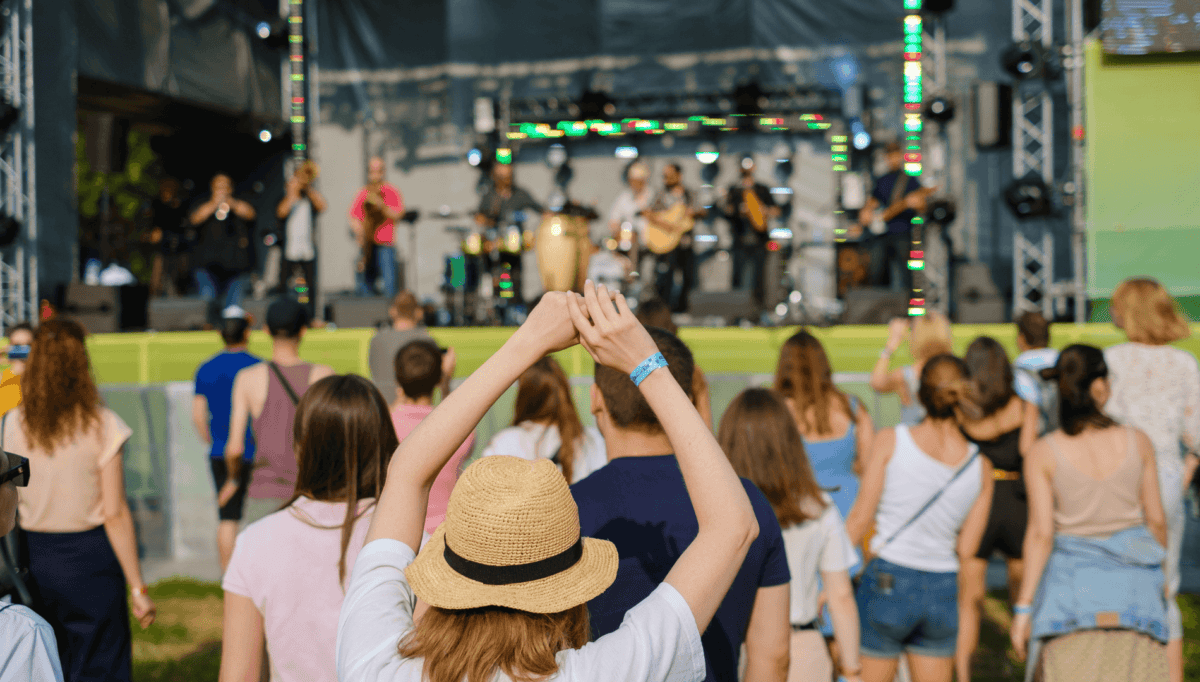- How to Have Fun During the Holidays With Hearing Aids - December 15, 2024
- How Smoking Affects Your Hearing Health - December 5, 2024
- How to Protect Your Ears at Concerts - November 27, 2024
Concerts are exhilarating experiences for music lovers, but they can be tough on your ears. Are you aware that prolonged exposure to loud sounds can lead to hearing loss? It’s essential to protect your ears while enjoying live music. The good news is that there are simple steps you can take to safeguard your hearing without compromising your experience.
Understanding the Risk
Loud music can be thrilling, but it can pose a significant risk to your hearing health. Many concerts produce sound levels that exceed 100 decibels. Just a few minutes of exposure to such high levels can cause permanent damage to your ears. Over time, this can lead to hearing loss or tinnitus, a condition marked by constant ringing in the ears. Knowing the risks involved is the first step toward taking the necessary precautions.
Use Ear Protection
One of the most effective ways to shield your ears is by using ear protection. There are various types of earplugs designed specifically for music lovers. These earplugs can reduce the volume of the music without distorting the sound quality. Some popular options include foam earplugs, high-fidelity earplugs, and custom-molded earplugs. Investing in a good pair of earplugs can make a big difference in preserving your hearing.
Foam Earplugs
Foam earplugs are a cost-effective option and are widely available. They are made of soft foam that expands to fit your ear canal, providing a substantial noise reduction. However, foam earplugs can sometimes muffle the sound, making it less enjoyable.
High-Fidelity Earplugs
High-fidelity earplugs are designed to reduce the volume without compromising the sound quality. They filter the sound to maintain clarity, allowing you to enjoy the music without the risk of hearing damage. These earplugs are slightly more expensive than foam earplugs, but they provide a better listening experience.
Custom-Molded Earplugs
For the best fit and protection, consider custom-molded earplugs. They are made to fit the unique shape of your ear, offering maximum comfort and effectiveness. While they are the most expensive option, they provide excellent sound quality and protection.
Find a Safe Spot
Your position in the venue can significantly impact your exposure to loud sounds. Standing close to the speakers exposes you to higher sound levels, increasing the risk of hearing damage. Instead, try to find a spot away from the speakers. This will reduce your exposure to loud noises while still allowing you to enjoy the music. Additionally, avoid standing directly in front of the stage where the sound is typically the loudest.
Take Breaks
Concerts can last for hours, making it essential to give your ears a break. Step out of the venue periodically to allow your ears to recover from the loud sounds. This simple act can help prevent long-term damage and keep your ears healthy. During these breaks, you can use the time to get some fresh air, hydrate, and recharge before heading back in.
Monitor Volume Levels
Many smartphones have apps that measure sound levels. These apps can help you monitor the volume during the concert. If the decibel level exceeds 85 dB, consider using ear protection or distancing yourself from the source of the sound.
Limit Alcohol Consumption
It might be tempting to enjoy a few drinks while watching your favorite band, but alcohol can impair your judgment. This can make you less likely to take necessary precautions to protect your ears. Moderating your alcohol intake can help you stay aware and make better decisions for your hearing health.
Know the Symptoms of Hearing Damage
Recognizing the early signs of hearing damage is vital. Symptoms like muffled hearing, ringing in the ears (tinnitus), or difficulty understanding speech in noisy environments can indicate hearing loss. If you experience any of these symptoms after a concert, consult a hearing specialist immediately. Early intervention can prevent further damage and help manage any existing issues.
Educate Your Friends
Spread the word about the importance of ear protection at concerts. Educating your friends and fellow music lovers can create a culture of awareness and safety. Share tips and encourage them to use ear protection, take breaks, and monitor volume levels. By looking out for one another, you can collectively enjoy concerts while ensuring everyone’s hearing remains intact.
Conclusion
Protecting your ears at concerts is essential for maintaining your hearing health. Use ear protection, find a safe spot, take breaks, monitor volume levels, and limit alcohol consumption to enjoy live music safely. Recognize the symptoms of hearing damage and educate those around you. By taking these steps, you can enjoy concerts fully while safeguarding your hearing for the future.

